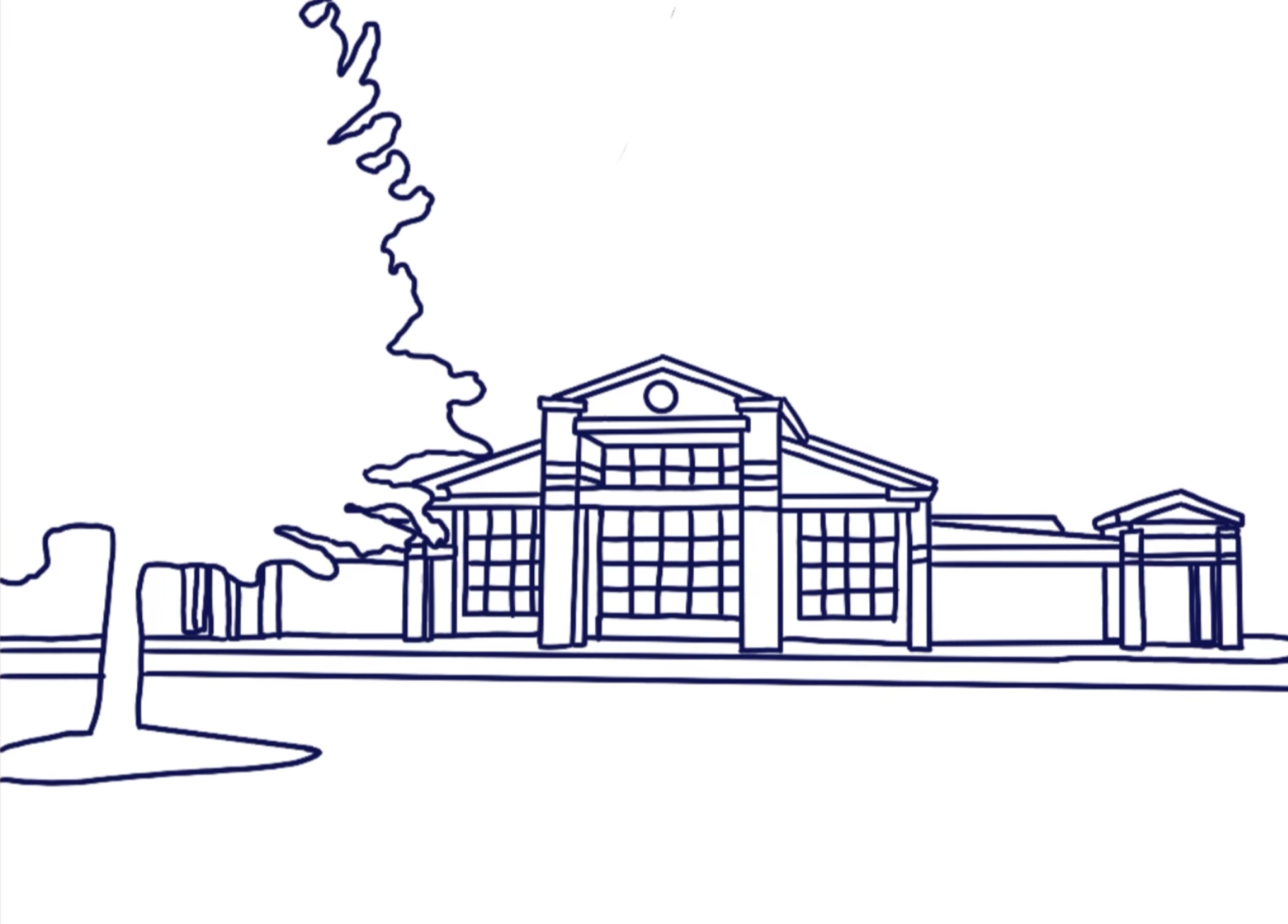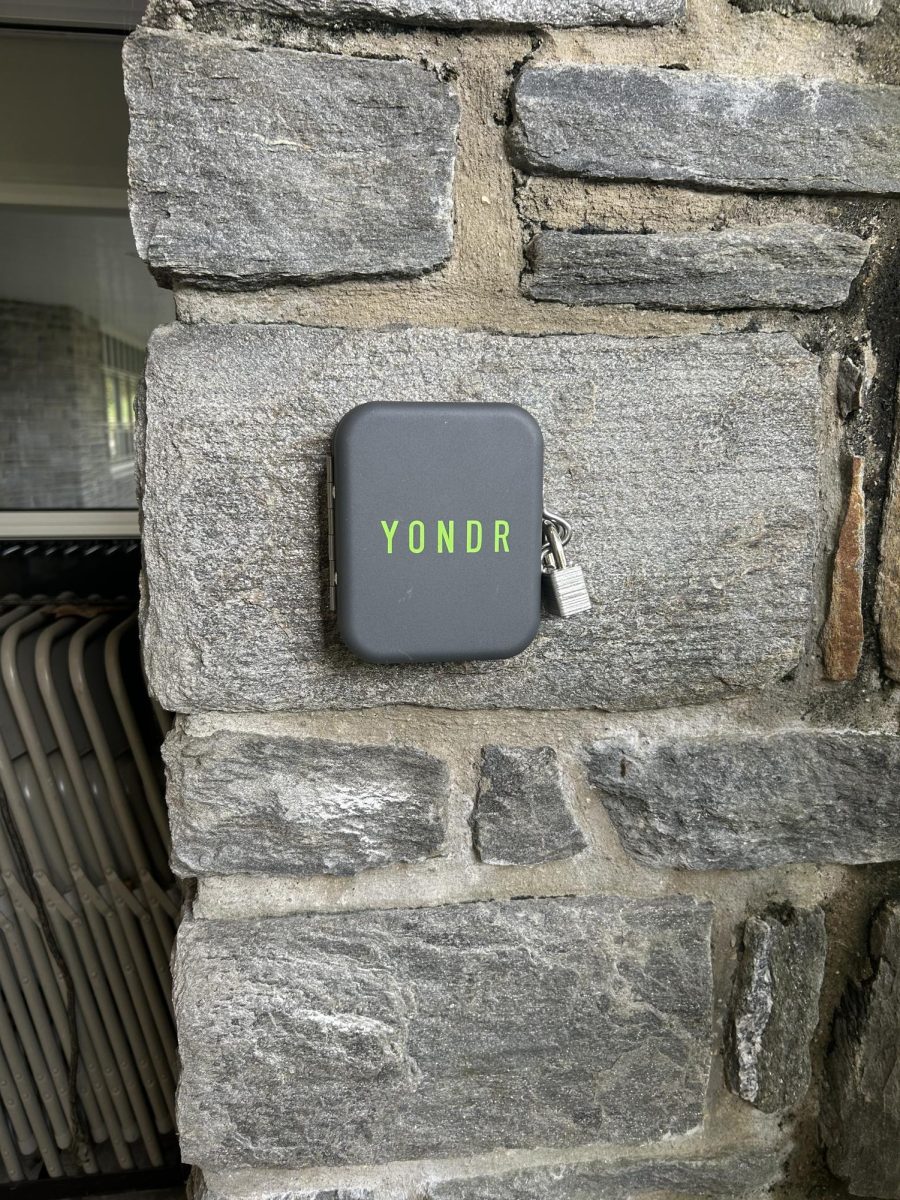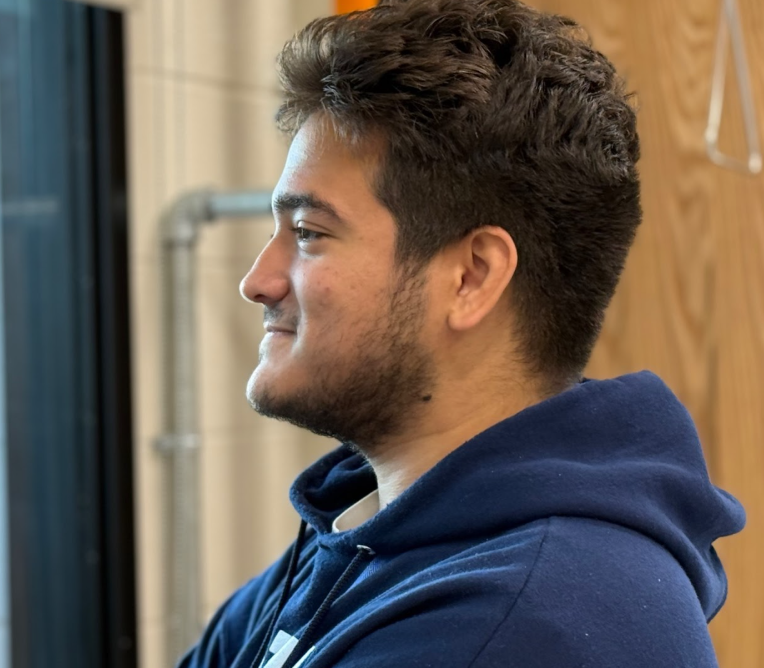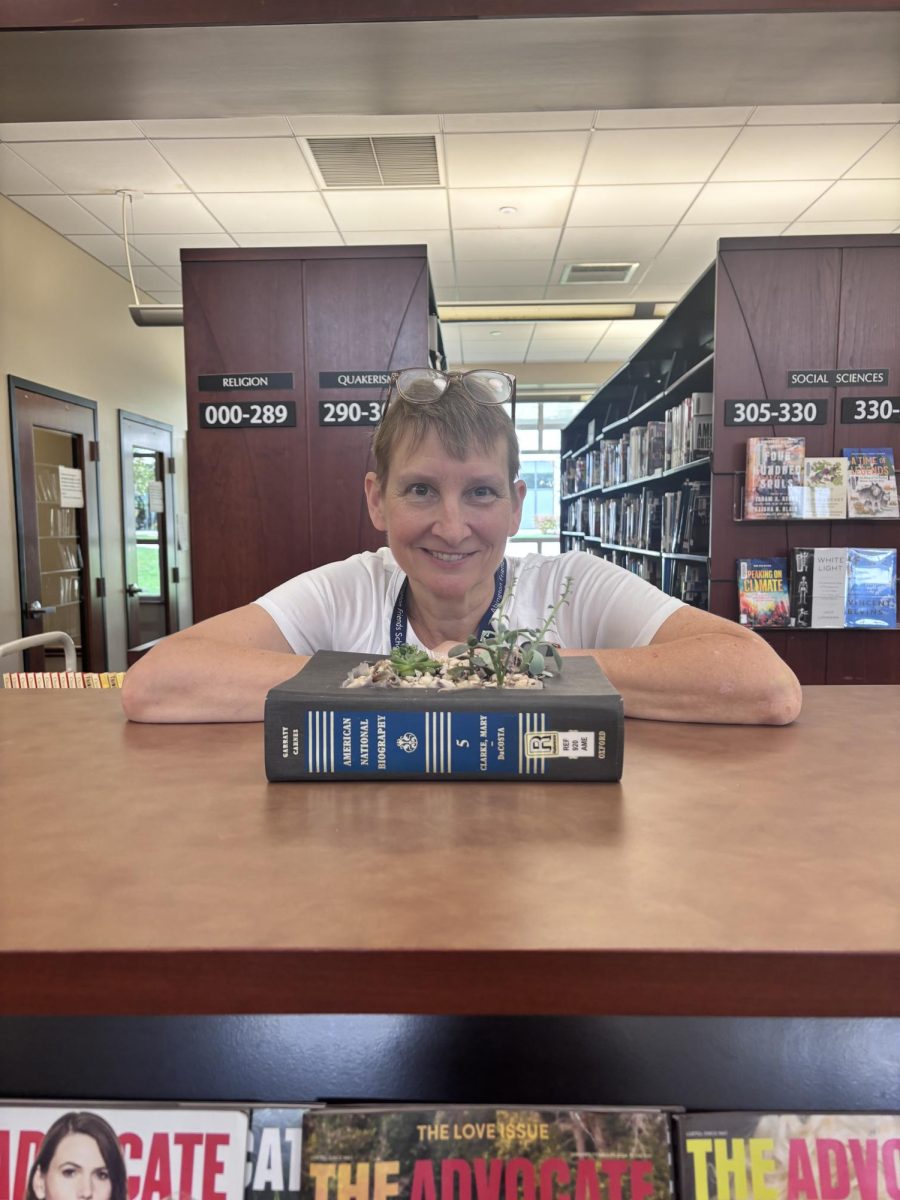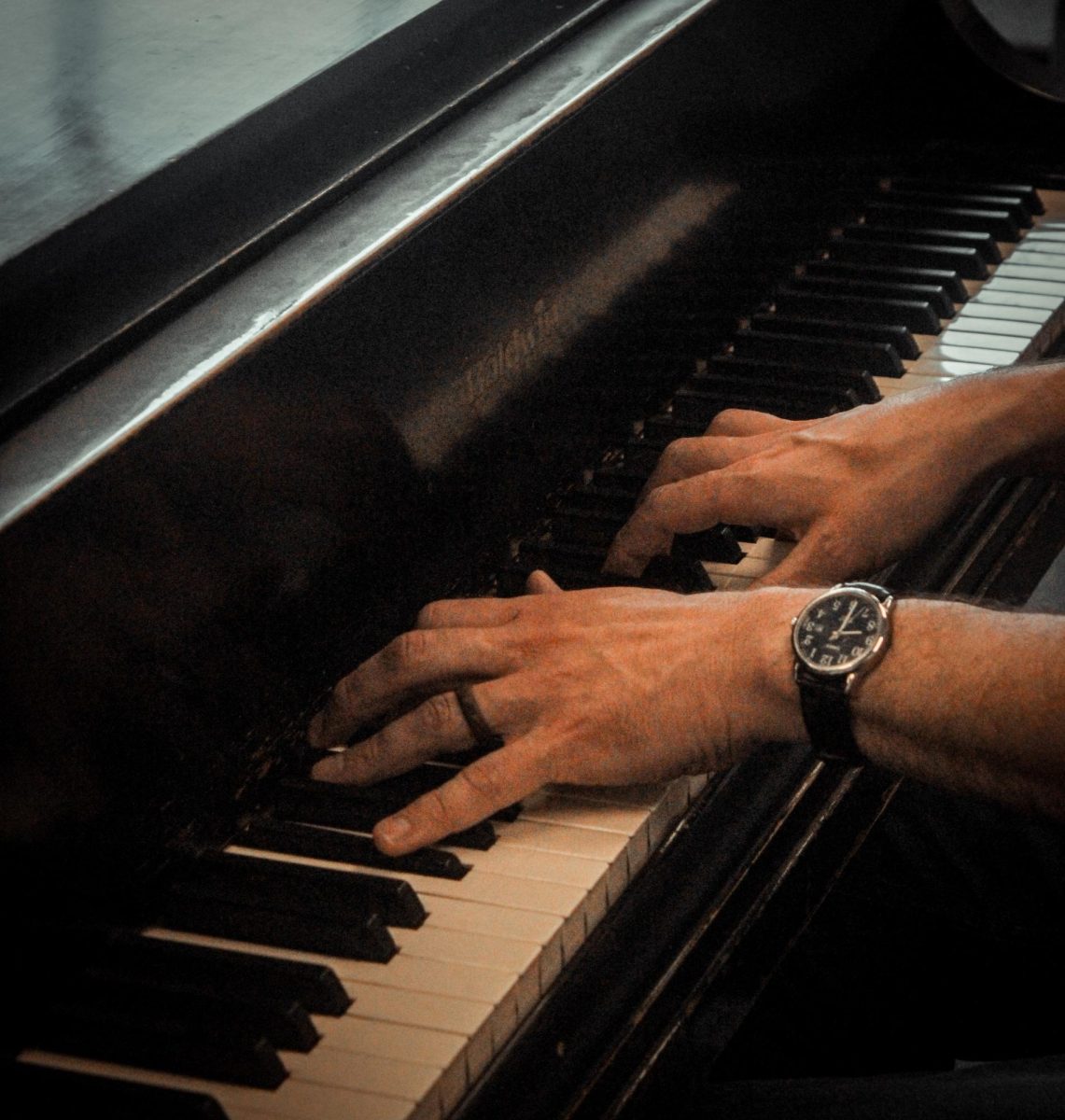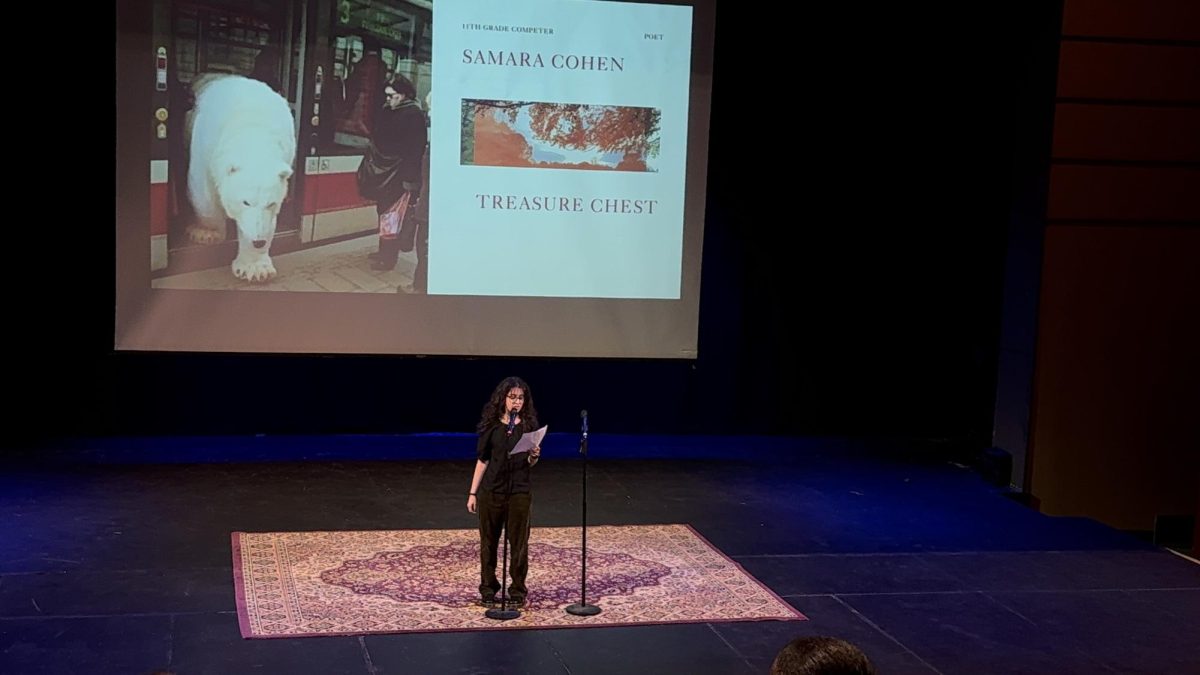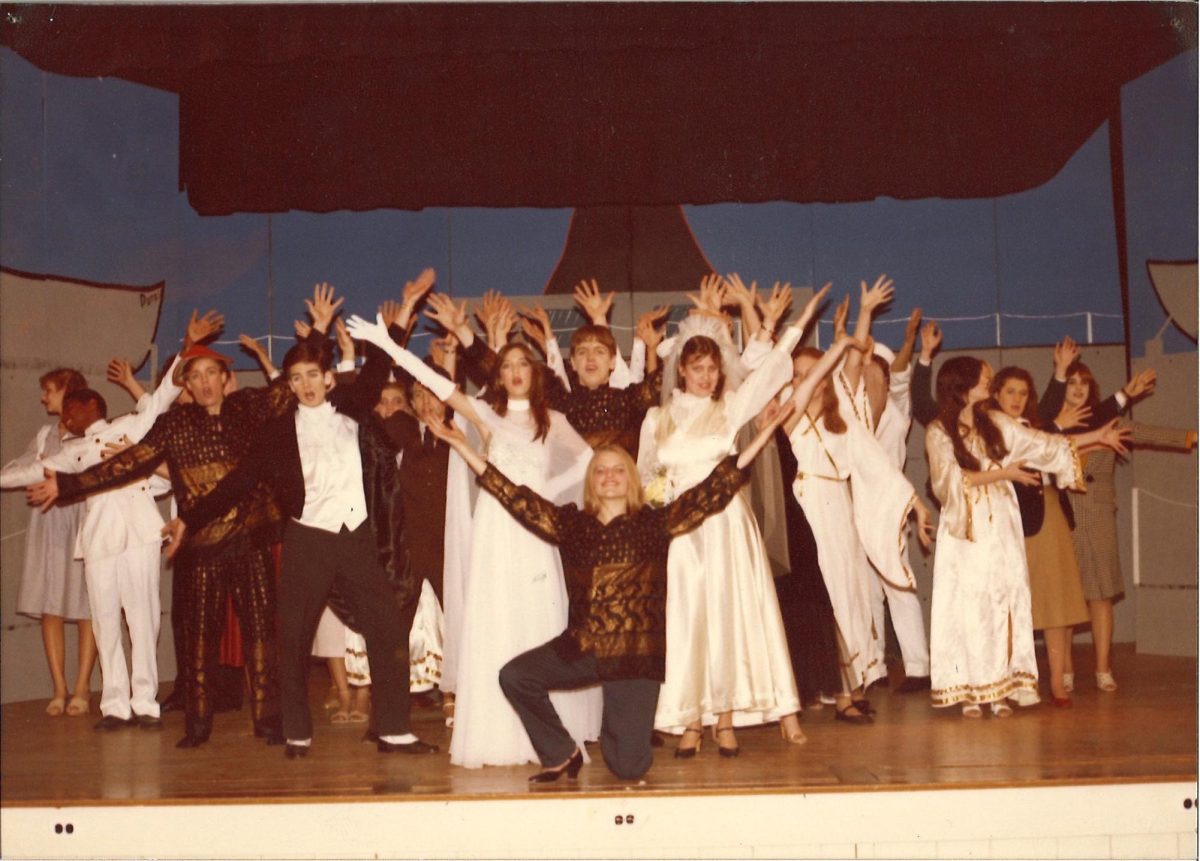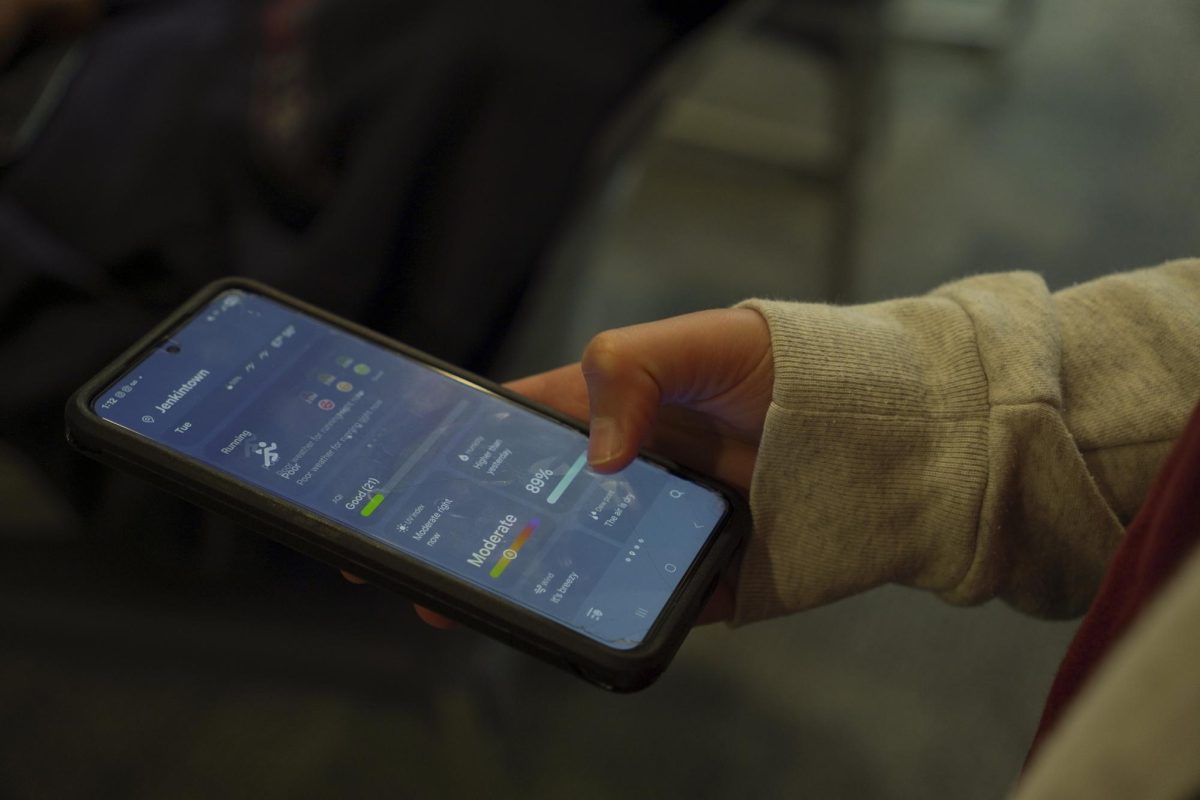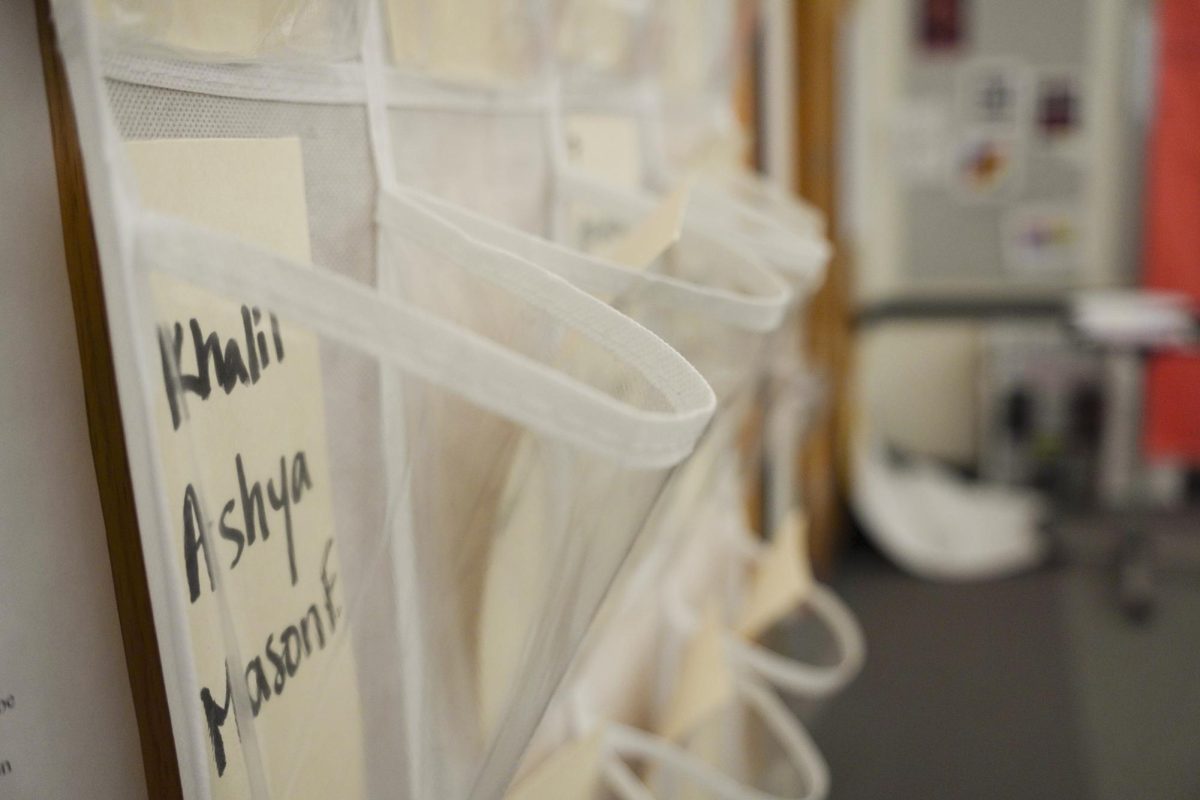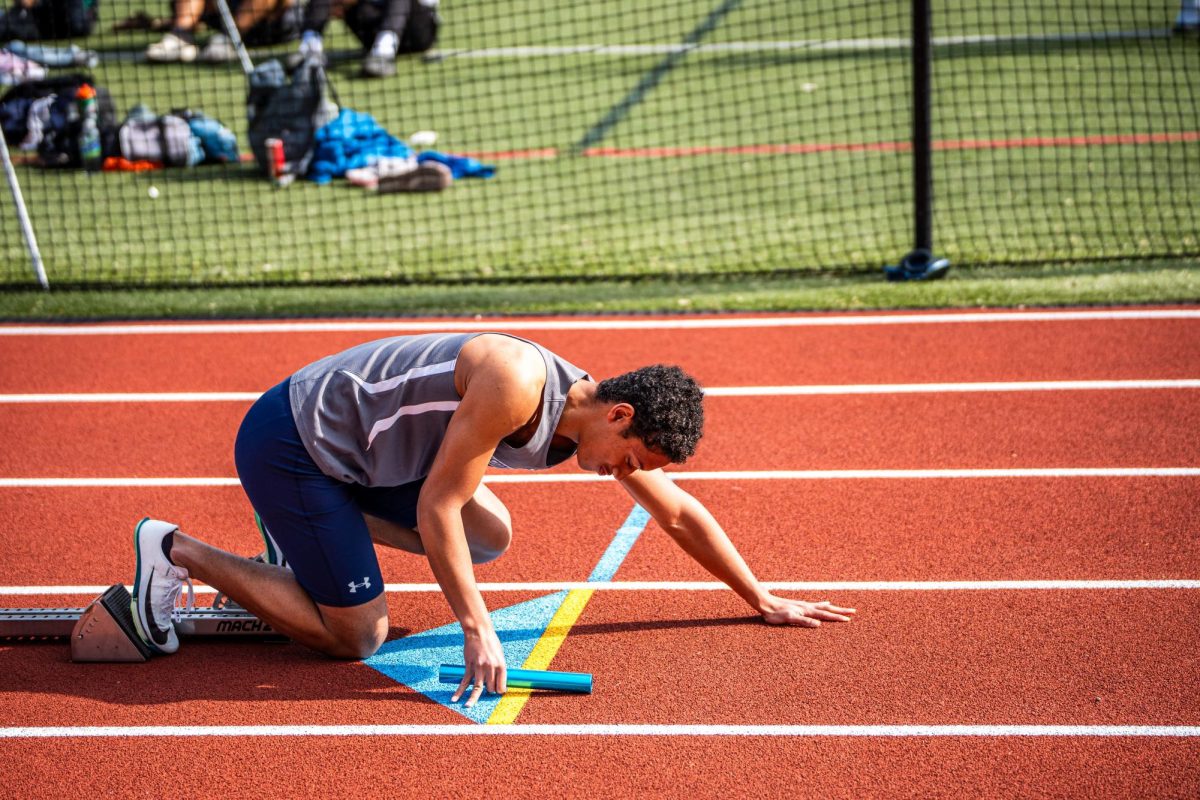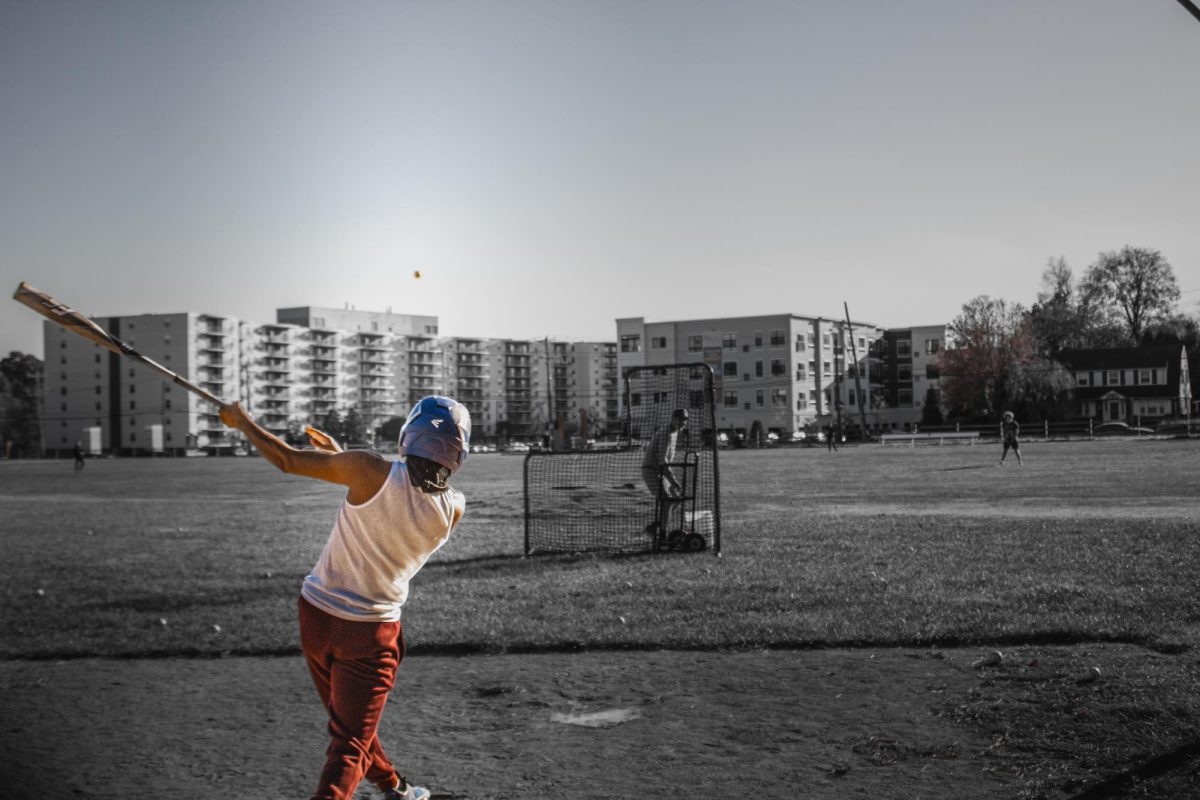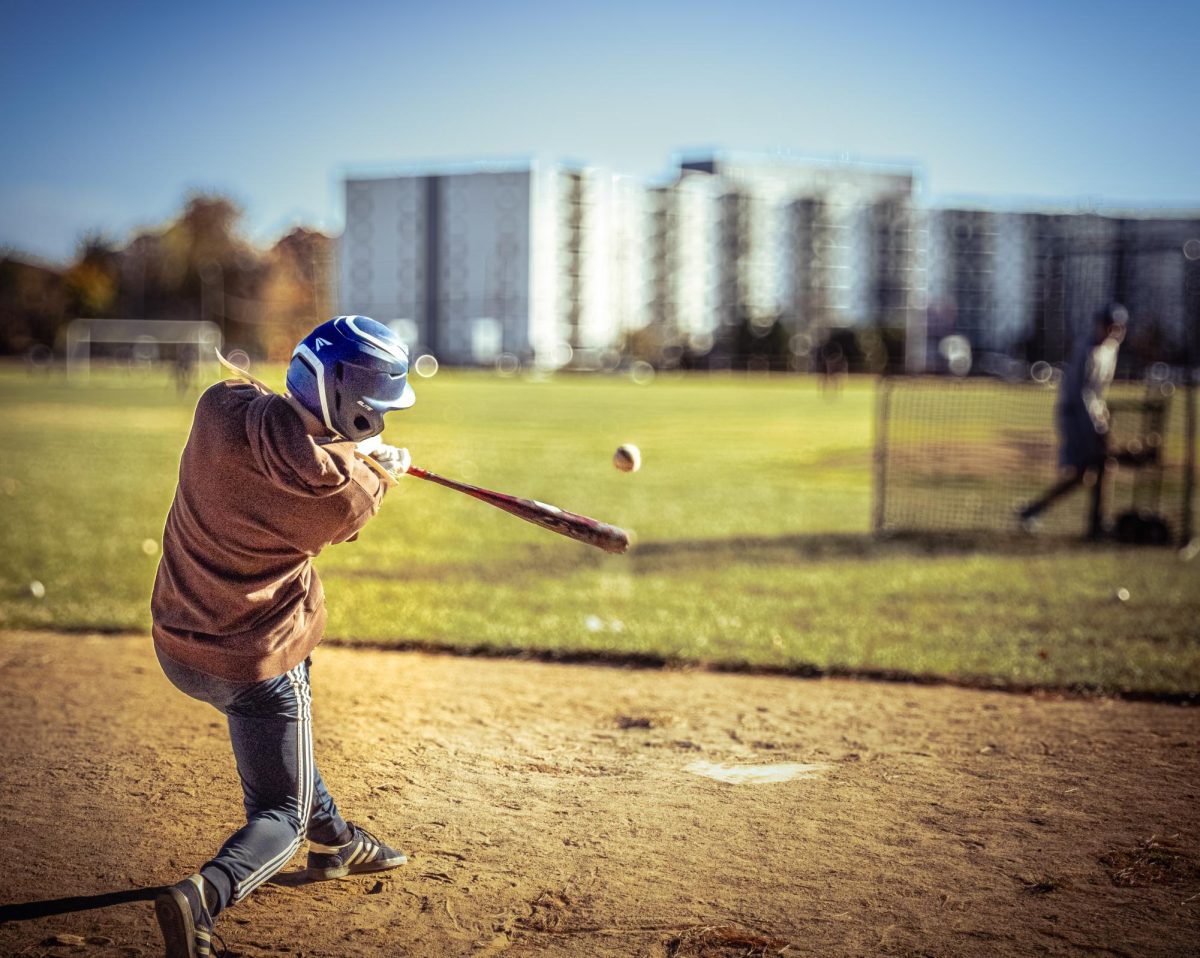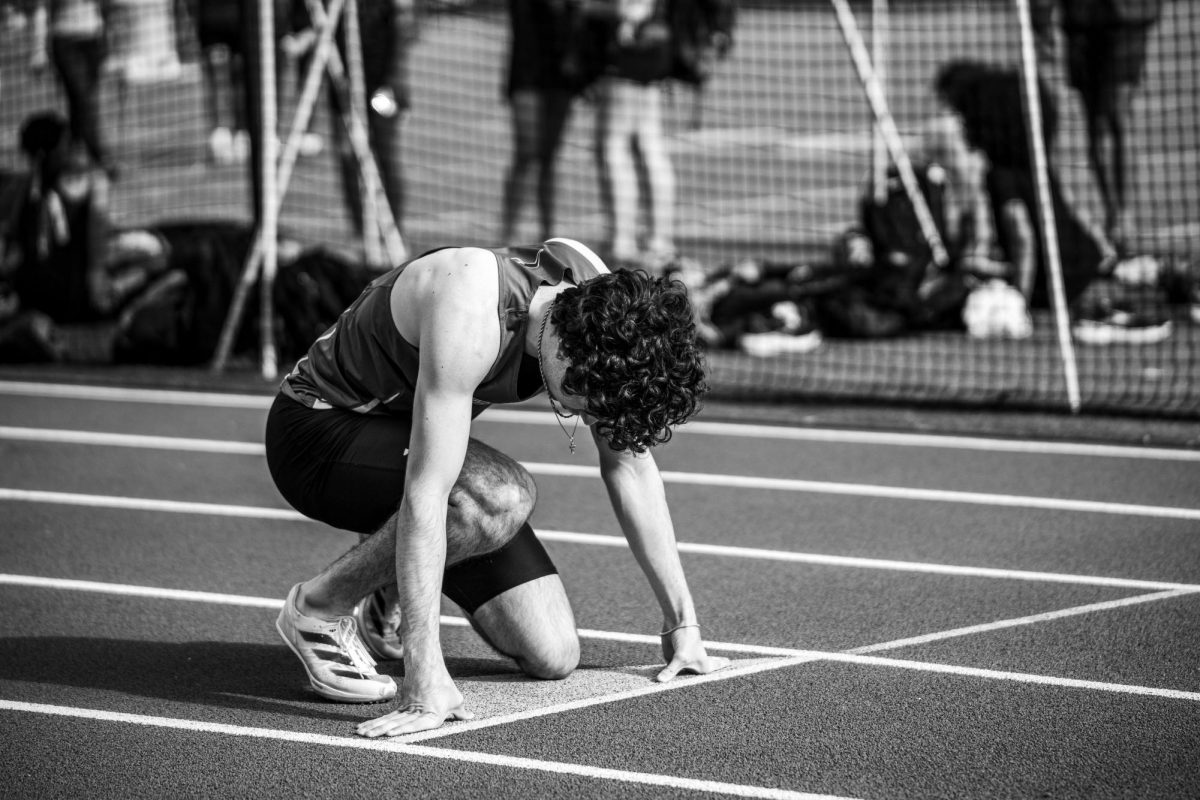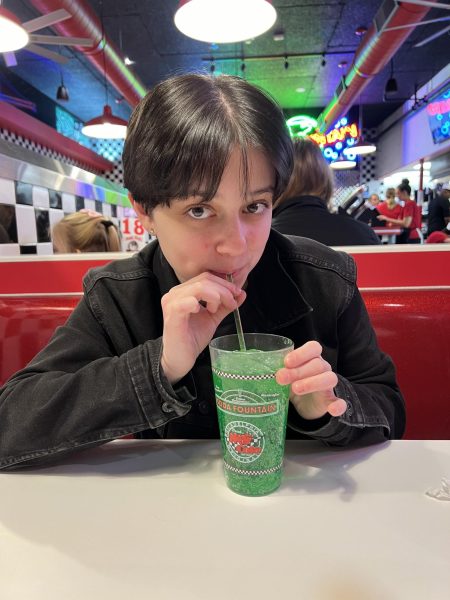Urinetown: The Musical by Greg Kotis is a story about rebellion against a tyrannical government, with the people of the world being forced to pay in order to pee. Bobby Strong is the leader of the rebellion, but he could not have done it without the people of his town. So you may be wondering, who are these people that are supporting him? What are their names, their hopes, their passions, what led them to the point they are at now?
The script unfortunately does not include many of these things. The characters with a few lines are only represented initially by those few lines. It is up to the actors to develop their characters past what is on the pages, with the help of their directors and their fellow cast members. Director Kittson O’Neill and student director Yael Smith Posner ‘25 made the decision to have the ensemble develop their characters past what is written in the script.
Why was it important to you to have the ensemble members create identities for their characters?
O’Neill: The script is a cartoon, but a cartoon is more fun if it’s specific. The names of the characters give you some sense, maybe, of who they are, but for an audience looking at the stage you want the fullness of choices and motivation to be happening with everybody on stage, not just the lead characters.
It makes the stage feel richer and more full to have people have complicated lives even if you never hear about them. It also is frankly just more fun! It is more fun for the actors, it is more fun for all of us if there is more material to play with.
What is your favorite part about the ensemble as an actor and also as a director?
O’Neill: My favorite part as an actor about being in the ensemble is the solidarity. You really have a crew of people that you’re building together with, and that feels fun. You know they’re supporting you, you’re supporting them, you can feel the energy of the show through how you’re doing as an ensemble.
I was on the crew team in college, and when you’re all rowing together and you’re really together the boat flies. And that’s what it’s like when you’re in an ensemble that’s really working well together.
As a director, what’s fun about them is how many jokes you can put in the show that aren’t in the script—especially when you have an ensemble like this one that’s really game, that wants to play, that wants to do silly stuff—we’re able to put a bunch of other things in the play, and I love that.

What work did you do with the ensemble members to help develop their characters?
Smith Posner: I led a workshop on character development that focused specifically on physicality. …I used the influence of other theater professionals [Michael Chekhov and Rudolf Laban]. …Chekhov was about body parts and leading with different body parts.
How does your character change when you lead from your head, your nose, your shoulders, your belly, your knees, your feet, [or] your hands? What does this say about your character? A character that leads with their pelvis, for example, we can infer that they are lustful. A character that leads with their forehead or eyes is very thoughtful. Then we looked at levels of tension.
How does tension affect the feeling of the character?
Smith Posner: Tension affects the character because it increases stakes in a scene. In Urinetown for example, when a character really really has to pee, they’re going to have a higher level of tension. Whereas if you’re falling in love with the guy who [works at] at amenity #9, for example, you [have a] lower tension because your [body is in love].
What was the actual workshop like?
Smith Posner: I had actors pick out different cards with body parts, speed, and tension, and combine them. They [didn’t] show it to anyone else. They walked around the room and we had to guess what their cards were, but more importantly see that those combinations of those cards created a character.
The other thing we did was a character analysis sheet. I gave them a whole bunch of probing questions and encouraged them to develop their own character and backstories. It asked things like what’s your background, who were you before and after the Stink Years*, how did the Stink Years affect you, how do you feel about revolution? [Then] I gave them all a lot of time to talk with each other and figure out who they were in relation to each other. [N]ow all of these characters are not just individually interesting characters, but together create a world.
*The Stink Years was the period of time during Urinetown at the start of the drought, when the people had fewer cares and lived with less fears in their everyday lives.
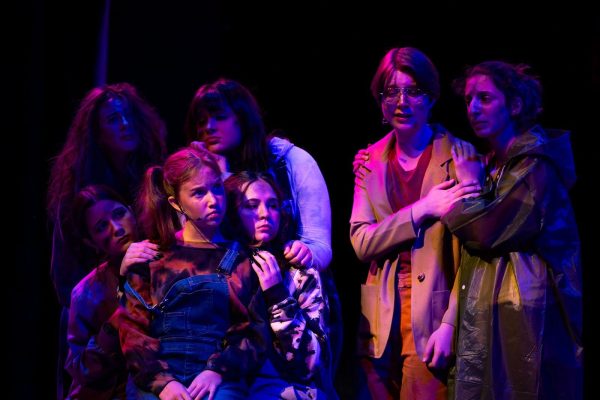
After speaking with the directors, I interviewed ensemble members Anjali Tremblay ‘26 and Molly Taylor ‘28 to hear about their experiences with their characters.
Can you tell me in a sentence or two what relationships your character has with other characters/people in the ensemble?
Tremblay: [Billy Boy Bill] is Robby the Stockfish’s (Una Davis ‘26) illegitimate son and Hot Blades Harry’s (Oliver Peterson ‘25) younger brother. He has kind of complicated relationships with both of them: he resents Harry and has very mixed feelings about his dad, so it’s always fun to use that to enrich the small moments when our characters interact. Lastly, he also has a personal grudge against Cladwell and really wants revenge, which is what motivates him to join the rebellion.
Taylor: My character [Tiny Tom] is the younger sibling of two other ensemble members, [Avila Widerstrom ‘27 and Mia Sasser ‘27]. In the show, we are siblings who own a restaurant together. Our parents, who are not written into the script, were sent to Urinetown, which is the reason we all are excited to quickly join the revolution. …[Our characters] are ready to kill anyone.
How did you develop your character?
Tremblay: I think the most important part of developing my character for me was leaning more into the physicality of him because he doesn’t have a lot of lines, so there’s not much in the script. I made up different relationships I have with other characters, and I think that really helps me translate my character on stage. For example, I can talk to someone if I know that my character is best friends with their character, or someone I hate I will avoid, or fake insults.
Taylor: My character, Tiny Tom, has a few lines throughout the musical, so I… made sure to look deeper into those lines to help understand how Tiny Tom thinks and acts. I have found though, that a lot of my character development has been built upon on the stage, especially as there are many other characters with big energies to work with.
What was your favorite part about developing your character and working with other ensemble members?
Tremblay: I think my favorite part was again the relationships between the different characters. We have a really elaborate set of relationships… [I]t makes it really fun for when I’m on stage and I have no lines, just blocking. It makes it more enjoyable for me and for the audience to watch me because it deepens my reactions to other characters and my reactions to what’s happening in the show.
Taylor: One of my favorite parts of developing my character was getting to meet other Upper school students! To create a working environment both on and off the stage… was very important. I found that through rehearsals… I have been able to grow closer with students who aren’t in my classes or even [my] grade.
The character building process has made my experience in Urinetown much more fun as it has allowed me to work on my acting skills, through moments in the script where I have lines, or simply just reacting to others.
Come out to see Urinetown: The Musical on November 14, 15, and 16 to see all of the hard work the ensemble members and the rest of the cast have put into this show. We hope to see you there!
